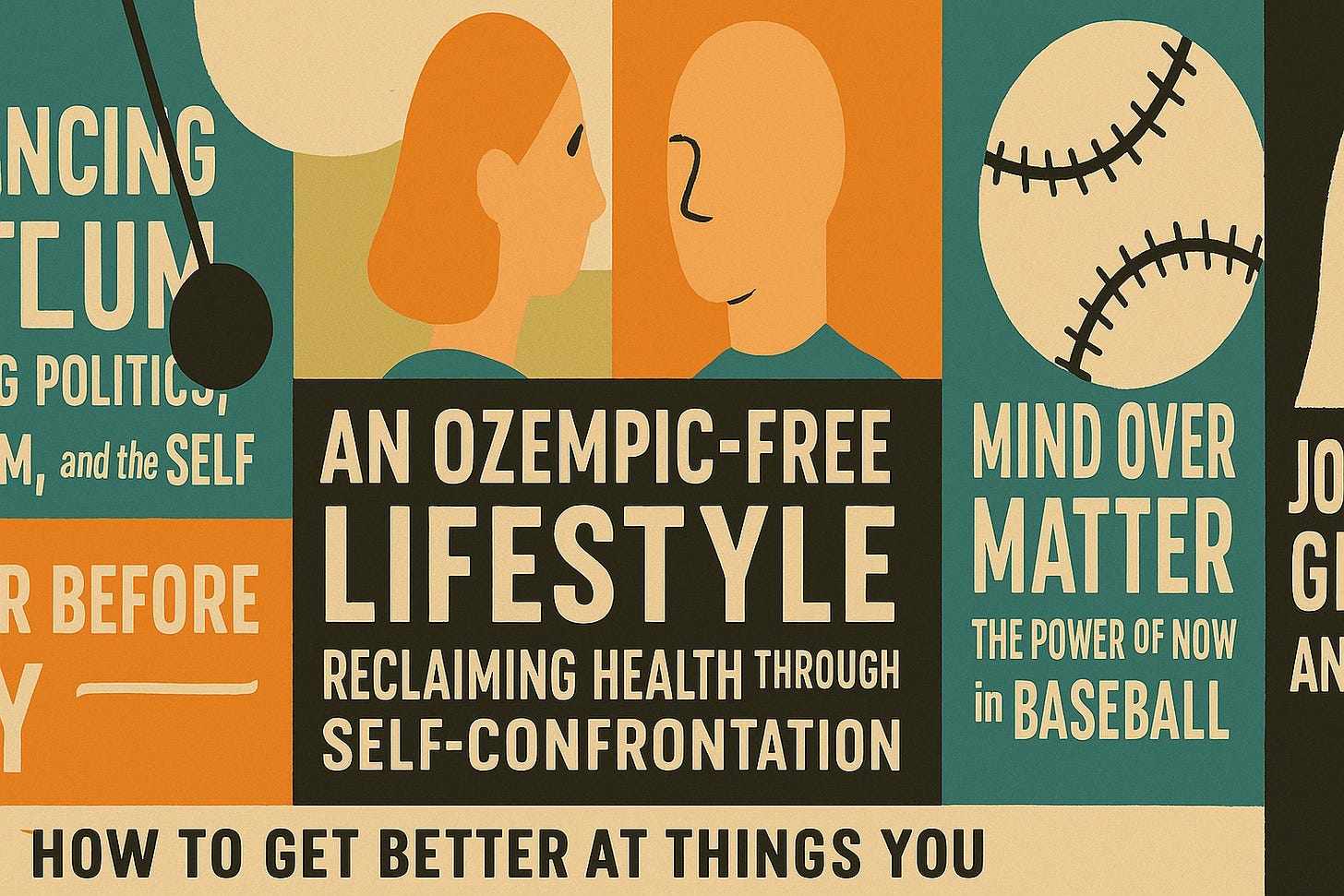Fear Doesn't Require Literacy. Reflection Does.
How Not to Go Viral (or Combust) in the Age of Outrage Instead of setting myself on fire, I decided to write for free.
My name is Jose Franco, and I am guilty of believing that reflection can compete with fire.
I grew up in the Bronx in a neighborhood where people worked too hard to believe in a fair world. My mother sewed garments for strangers and prayed that hard work would keep the lights on. I watched good men arrested in immigration raids and bad ones rewarded for cruelty. Out of that contradiction I built a philosophy: if the world isn’t just, maybe honesty can be.
So I write about my blind spots — the illusions of fairness, the myths of merit, the vanity of moral certainty. I call them confessions because each one starts with me admitting how wrong I’ve been. And I post them for free, because charging admission to witness someone else’s humility feels unholy.
But here’s the problem: humility doesn’t trend.
Outrage does. Fire does.
History has no shortage of people who’ve set themselves ablaze to demand attention — monks, war protesters, activists who believed that burning the body might ignite the conscience of a nation. Their flames made the front page. Their silence screamed louder than any slogan.
Today, the fires are digital. The self-immolation is metaphorical — reputations torched online, moral certainty broadcast in HD, outrage used as lighter fluid. It’s all theater. In a world where attention equals relevance, the calm voice rarely survives the algorithm.
That’s where someone like Zohran Mamdani comes in. He’s not alone in this — the same can be said about Donald Trump. Both have mastered what I refuse to touch: the strategic use of fear and spectacle to aggregate attention. They speak to our wounds, not our wisdom. They amplify anxiety, not introspection.
Their rhetoric works because fire scales.
Reflection doesn’t.
My friends tell me I’m naïve. They say I treat philosophy like lemonade — if I just give it away on the stoop, people will drink it. They’re right. My romance with free thought is a blind spot. I keep imagining that if enough people read a page titled “Fear Doesn’t Require Literacy. Reflection Does,” they’ll pause, think, and maybe share it. Instead, they scroll toward whoever’s burning brighter that day.
So yes, my plan is economically unsound and emotionally stubborn.
But I’d rather be the guy holding a mirror than the one holding a match.
What I’m offering isn’t comfort. It’s confrontation — with yourself.
Read one of my essays and you might find the villain isn’t who you thought it was. It could be your craving to be right, your habit of scrolling instead of thinking, your certainty that the other side is evil. The real revolution is the quiet moment when you see your reflection and realize you’ve been shouting at a distorted version of yourself.
That doesn’t sell T-shirts, but it changes people. I’ve watched teenagers on my baseball teams — kids who’d rather take batting practice than read Nietzsche — discover patience because we talked about pitching as an act of moral balance. That’s the same muscle reflection builds: staying in control when everything around you screams burn it down.
Before anyone calls me self-righteous, let’s admit something universal:
We’re all blind somewhere. My romanticism is one kind of blindness. The cynic’s sneer is another. Dismissing hope as foolishness is still a confession of fear — fear that nothing matters. When critics say “nobody reads long essays anymore,” they’re really saying “I’ve stopped believing people can think for themselves.” That’s not pragmatism; that’s surrender.
So let’s make a deal. I’ll own my idealism if you’ll own your resignation.
Meet me halfway, in the messy middle where thought still matters.
I know why people set themselves on fire — literally or figuratively. They want the world to notice. They’re exhausted from speaking softly into the void. I get that feeling. But I’ve learned that meaning doesn’t come from spectacle; it comes from endurance.
I’d rather embrace my insignificance than weaponize my suffering. Because once you stop trying to be the flame, you can finally see the light.
That’s the paradox of reflection: it’s slow, invisible, and profoundly unmarketable. But it’s also indestructible. The internet can’t cancel a quiet conscience.
If you need a slogan, here it is:
Fear doesn’t require literacy. Reflection does.
That’s the bumper sticker, the rallying cry, the prayer. I’m not building a movement; I’m restoring an endangered skill: thinking out loud without needing applause. If enough of us practice it, maybe we’ll reach the true critical mass — the point where Americans stop asking who’s to blame and start asking what’s true.
So yes, this is my stump speech: a campaign for curiosity in a country that confuses noise for wisdom.
Vote if you must, protest if you can, but don’t light yourself on fire — literally or emotionally — to prove you care. The republic doesn’t need another martyr. It needs a few million readers willing to see themselves clearly. That’s harder than outrage. It’s also freer.
Now, if you’ll excuse me, I’ve got to write the lineup for the 12u team I’m coaching this weekend and an inbox full of people telling me my essays are too long.
They’re probably right.
But maybe they’ll read this one anyway.
Jose Franco is a Bronx-raised writer living in Brooklyn NY, baseball coach, and founder of Stoop Juice. His latest book, The Blindside of Well-Meaning Liberal Economics: 22 Confessions of a Subjective Truth-Seeker, and his essays are available for free at stoopjuice.com.


